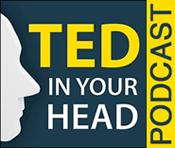How to Figure Out Your Relationship

One Valentines Day back in the 90s, I was out to dinner with a woman I had just started seeing. She had thoughtfully arranged for a card and a gift to be at the table when we arrived. We were sitting at a table that had a small electric lamp. As were talking, I noticed that if I moved my foot, it moved the cord to the lamp and the lamp would jiggle just a bit.
“Ooh!” I joked. “The lamp is haunted!”
My date then got very upset. “Can’t we be romantic here? Do you have to joke and cut up right now? You’re ruining it!”
I didn’t know what to say. I had been in a good mood but that got deflated pretty quickly. I was just being myself, but obviously that wasn’t acceptable to this person. I spent the rest of dinner silent and trying to figure out what when wrong while she continued to express her displeasure with my attempt at humor.
Of all the endeavors we undertake, by far, the most dangerous and risky is to get into an intimate relationship. For many of us, it is the most important and yet the most difficult aspect of our lives. It’s always great in the beginning, until the “honeymoon period” is over. Then you find that you want the person to change and be more like you! You may even ask yourself “How could I have hooked up with this person that now seems so different from me?”
I’ll tell you how: opposites do indeed attract. Look around: in most couples, there is one that is more outgoing and social, while the other is more introspective and quiet. For example, there is one that is neater, has more discipline, and sticks to schedules, while the other is not so neat or disciplined and plays loose with time and schedules to the frustration of the other.
The reason for opposites attracting is that we really do look for someone to complete us; we often seek in the object of our affection traits that we do not possess ourselves. It might be confidence or thoughtfulness, discipline or spontaneity, lightness or seriousness.
This draws us together and for a short period of time we are in the bliss of romance (honeymoon period.) However, soon reality takes over. We start to notice things that irritate us or that we disapprove of. We find that we have trouble expressing our wants and needs. The very differences that brought us together are the things that threaten to break us apart. (He works too much! She thinks money grows on trees!)
What is the key to unlocking the mystery of relationships? How do we celebrate the differences that brought us together while finding enough common ground to keep us on the same page? We know that communication is important, of course. But communication itself can be problematic when we say one thing and our partners hear another. Or when you want it spelled out plainly while your partner assumes you should be able to figure it out.
One valuable key was introduced to me while I was in hypnotherapy college. It is called the E and P Attraction. Developed by Dr. John Kappas, the founder of the Hypnosis Motivation Institute, it is one of the best explanations of relationship behavior that I have heard.
The idea is that you are predominately an “E” or a “P” in relationship. Which one you are is determined by childhood experiences, your parent’s relationship and even your past relationships, to name a few factors. Understanding which one you are, as well as the characteristics of each, can open a window allowing you to see more clearly why you behave the way you do in relationships, and maybe more importantly, why your partner behaves they way they do.
Want to learn more? HMI offers an online video course in what is known as Emotional and Physical Sexuality. It’s 2 hours , it’s free, and it’s presented by George Kappas, the director of HMI and he is an excellent presenter! There’s even a test you can take to find out if you are E or P. Taking this test is the first step in discovering how our subconscious mind dictates who we pick as romantic partners and why many of our relationship behaviors and patterns repeat themselves.
Many people that I’ve introduced this concept to have expressed fascination as they see for the first time why they “do” relationships they way they do. I encourage you to check it out and let me know what you think. Click here to find out more.
If you liked this post, why don’t you leave a comment and share it with your social networks using the buttons below?



